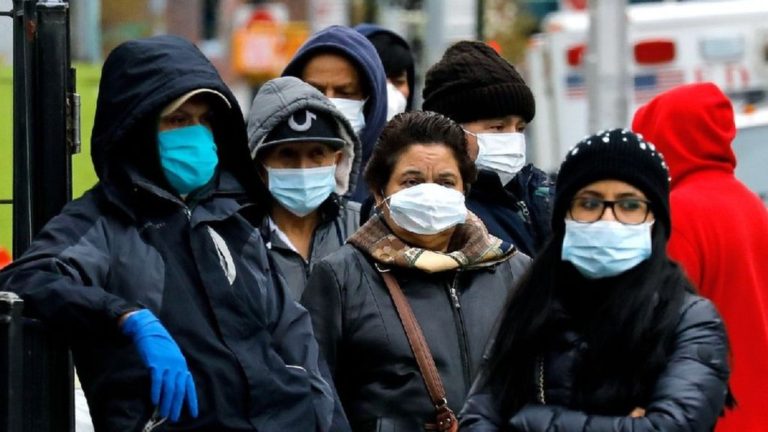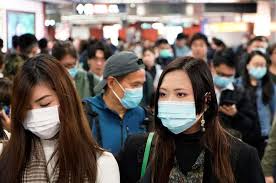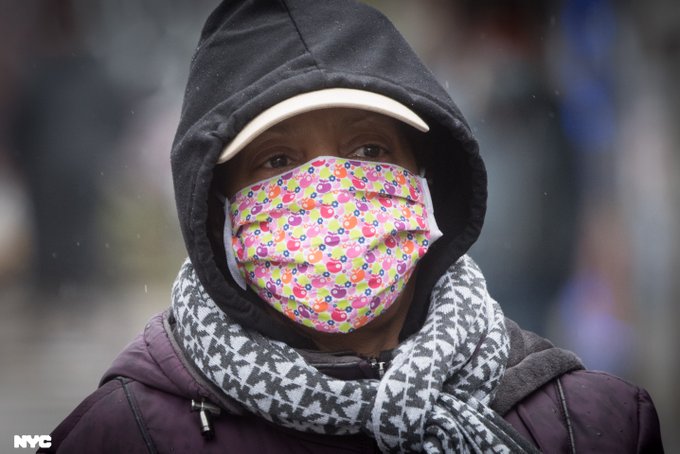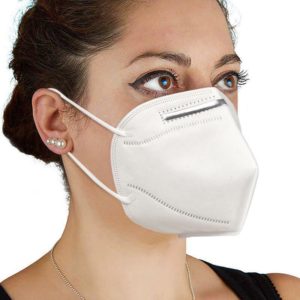
As of writing this article on May 1st 2020, most people are wearing various forms of face masks to prevent transmission of coronavirus. Many state governors have have ordered people to wear masks. I have not found instances of fines or arrest at the time of writing this article, but the way things are going, it would not be surprising if we start to see this happen.
Mask wearing is changing social norms. Showing your face in public is a new cultural taboo. Masks are required to enter a store or conduct business. Government, businesses and social intimidation or forcing people to wear masks.
All this is of course believed to be based on science. Experts in organizations such as the WHO, CDC and state officials have told to wear masks. Since they are the experts and must know the science isn’t it best if we just follow along?
In order to figure this out, I’ve been doing some research on mask wearing.
Surgical and cotton masks for blocking sars-cov-2 virus

How much research has actually been done in the effectiveness of face masks in preventing the Sars-Cov-2 virus?
According to an April 2020 study “Whether face masks worn by patients with coronavirus disease prevent contamination of the environment is uncertain.”
This paper cites another study from March 2020. “Evidence that face masks can provide effective protection against respiratory infections in the community is scarce, as acknowledged in recommendations from the UK and Germany.”
Back to the mentioned April 2020 study, patients who had already been diagnosed with covid-19 were recruited. They were asked to cough towards a petri dish so the amount of viral particles could be counted. This was done with no mask, surgical mask, cotton mask, and then again with no mask.
Results found that neither the surgical or cotton masks effectively filtered SARS-CoV-2. Although looking at the data, the cotton masks did filter out more viral particles.
After the masks where used, they were tested for viral particles. There was actually more viral particles on the outside of mask, then the inner area where the patients would have been breathing directly on.
This means that with use the masks become a reservoir for viral particles. Hand washing is thus important to follow after touching the outer surface of masks.
Dangers of face masks
A 2015 study in the BMJ compared the effectiveness of cloth and medical masks in healthcare settings.
1607 healh care worker were divided into 3 groups:
- Wearing a medical mask at all times
- Control group, only wear mask in some situations. Different mask were used, medical and cloth.
- Wearing a cloth mask at all times
The study concluded:
We have provided the first clinical efficacy data of clothmasks, which suggest HCWs should not use cloth masks as protection against respiratory infection. Cloth masks resulted in significantly higher rates of infection than medical masks.
The authors pointed out several ways that masks may increase infections:
- Water retention may create an environment for pathogens to live
- Reuse and being used often allow viruses to contaminate the mask
- Self contamination is possible
Should cloth face masks be used for SARS and coronavirus

“Observations during SARS suggested double-masking and other practices increased the risk of infection because of moisture, liquid diffusion and pathogen retention. These effects may be associated with cloth masks.”
Therefore, the science does not support wearing these masks. Face masks have been designed to work in certain clinical settings with proper use. Different masks have different uses and properties. Putting on a random face mask, using it outside the environment it was intended for, and without following proper protocols can not be supported by the actual research.
Surgical face masks have been designed so a doctor or nurse dose not spread infectious material into a patient they are working for. They are not meant to protect the user from viral particles in the air
N95 respirator masks and SARS virus
The data does seem clear that if someone is going to wear a mask to protect against coronavirus, then a N95 respirator is the best option.

So does this mean that everyone should wear a N95 mask?
That would really depend on a comprehensive cost benefit analysis. These mask are designed to protect health care workers in professional settings where they are exposed to numerous sick people during the day. They also can be beneficial if you are close proximity to someone who is sick, such as caring for a family member.
Potential risks of wearing masks include:
- Lower blood oxygen and increased carbon dioxide
- Mask may start to harbor infections themselves with prolonged used
- Psychological stress of always needing to wear a mask and perceived danger
- Impaired social relationships. Humans are social creatures. Positive social relationships place a huge part in our psychological and physical health. Mask wearing impairs much of our non-verbal communication, which may effect our psychological state and thus overall health
Evidence that mandatory face mask wearing is preventing coronavirus
I have not found any evidence whatsoever that mandating face masks is doing anything to prevent the spread of coronavirus. The same can be said about other new public health measures that no one ever heard about a few months ago. “Social Distancing,” seems to be a made up thing. We don’t have any scientific research to support it.
Cost Benefit Analysis of mask wearing and “social distancing”
There are numerous social costs to mask wearing.
Financial cost of masks
Health care workers, or those caring for sick people, who genuinlly need masks, may run out of supply or be forced to reuse masks, which has it’s own dangers.
Masks cause lower oxygen in the blood and increased carbon dioxide. For a fit, healthy person who is not being very active, this probably will not be a problem. For people who are doing physically demanding labor, pregnant women, or with health conditions which cause fatigue or poor circulation this may be a problem
Masks themselves may harbor infections, especially used incorrectly of for prolonged periods of time.
Psychological stress of always having to wear a mask.
Emotional stress of emotions such as fear, which add another psychological burden to people.
Demands of lower oxygen intake will stimulate cortisol, the body’s major stress hormone. Increased cortisol is associated with stress induced disease. And virtually any disease can have a stress component to it.
Perhaps the largest factor is economic. Many jobs simply are not possible to do, or much more difficult with mask wearing and especially “social distancing.” Economic effects can include death from suicide, stress related illnesses, increase in anxiety, depression, lack of money to pay rent or buy food. All this contributes to illness and earlier death.
So what is the point of mask wearing?
If people do not wear masks properly, then there is not point to it. What is the purpose of putting society through all this stress, when there is a total lack of scientific evidence to support it, and most people are not even wearing masks properly. Due to health issues not all people can wear masks
On the day I wrote this post, outside my apartment building one of my neighbors was sick. Not from coronavirus, but she has apparently shortness of breath. She was outside with friend and family and seemed to have trouble breathing and apparently it was related to a heart condition.
I don’t know all the details and am not the type to be nosy about such things. But she was wearing a mask. A surgical mask outside. She didn’t even have it on properly all the time, often lowering it around her chin.
Surrounded by people, not breathing well, waiting for 911, she was standing their with her mask on. I yelled at them to take the mask off. From the research on mask use, a dirty, used mask, that is not even the right type to stop coronavirus would not nothing but make her breathing harder and lower her oxygen levels.
The other part of this, is according to our “experts” coronavirus is spreading through the population and it’s not so much a question of if we will be exposed, but when. So all this effort, expense, stress and harm to economy and people’s lives, for what? What is the point of this? What does our society get out of it?
It seems to me mask wearing is more of social ritual then genuine public health measure.